- Home
- Barry Lyga
Time Will Tell Page 3
Time Will Tell Read online
Page 3
And then they all looked at Liam, as though being the son of the sheriff made him an expert in crime-scene forensics. Liam nodded gravely, thinking, and then whipped out his phone, crouched, and started snapping away, keeping up a running commentary as he did so:
“That’s right, old Time magazine—give me sexy! Pouty! Oh yeah, Walkman—you’re fierce! You go, girl!” And on and on, until they all surrendered and started taking their own pictures. Whew. Awkwardness avoided.
When they were done: “We need to get this to the cops,” El said very seriously, brandishing the knife.
“Come on,” Liam said. “Guys. Are we really saying that one of our parents killed someone and hid the murder weapon in a time capsule?”
They all went silent for an excruciatingly long time. He’d meant it as a joke, a way of knocking back El’s too-serious concern. But by the time the words left his mouth, he realized what he was actually saying, and the joke fell facedown, dead on arrival.
“Well, damn,” Jorja said, and produced her fidget spinner from a pocket. Light sparkled and arced from it, racing spots along the shadows cast by the trees. “Good point. This thing belonged to our parents. This is their stuff.”
They all exchanged a worried look.
“For real?” Marcie said in a low, almost feeble tone. “Like… our parents?”
None of them wanted to contemplate it, but here they were. Liam racked his brain for something incredibly stupid and inappropriate to say.
“Maybe…” El held her hands up helplessly, rescuing him. “Maybe someone else sneaked it in?”
Sneaked. She was the only person he knew who said sneaked instead of snuck.
“Well, I know my dad didn’t do it,” Liam said. “He’s one of the good cops. And my other dad didn’t grow up here. The rest of y’all… who knows?”
They all stared silently at the knife. He could feel each of them wondering if their parents had it in them to kill someone.
“We really, really need to go to the police,” El said quietly.
“But we can’t just leave this stuff here,” Marcie pointed out. “Two of us will go to the cops. Two of us will stay behind to watch this stuff. Liam, you drove. And, El, you unwrapped the knife. So…”
Liam pretended to be annoyed, but his heart hammered. He wanted to be alone with El—he pretty much always wanted to be alone with El—and this time he swore to himself he wouldn’t blow it. He would actually say something real, not something stupid or snarky or just plain dumbass.
“Fine,” he said in his best grumble. “We’ll go bug my dad. C’mon.”
He grabbed his shirt from the ground, turned, and walked back down the hill without even a glance at El. Hardest thing he’d ever done.
The Canterstown Sheriff’s Department and Department of Public Safety occupied a building just off Founders Street, the main boulevard that cut through town, leading from the WELCOME TO CANTERSTOWN! sign to the east to the Wantzler factory in the west. The office lay at the end of a curl of road that wound through a series of dusty, undergrassed, unused lots. It was a plain brick building with beige-and-gray clapboard shingles, rising an imposing two! whole! stories! As a kid, Liam had spent so much time here that he thought of it as a second home. He knew which of the prisoner cells were the best to play in, and in which ones lingered a permanent parfum of mingled vomit and piss.
He parked in the space marked FOR DAY-WATCH COMMANDER. There was no day-watch commander.
“You okay?” he asked, glancing over at El. She’d been quiet the whole way here—the whole fifteen minutes—and he’d managed to keep his joking to a minimum, which hadn’t been easy. Now the sound of concern in his own voice caused a wellspring of hipster irony and bad taste to gush up from his gut. Against everything he held dear, he swallowed it down.
“Yeah,” she said, not looking up. “This is just… super weird, you know?”
“I don’t know about super weird,” he said, hearing his own thoughts for the first time as they came out of his mouth. “Maybe, like, ultra weird, which is one step down.”
She sighed something that was almost a laugh, papery and ephemeral.
Inside the office, half-height panels divided the room into six evenly sized areas. At the front was a high counter, behind which sat Loretta Blevins. Her official title was “sheriff’s office assistant,” but she knew for certain that this position was one step above the Lord God Himself on the org chart. She’d been sneaking Liam candies and cocoa since before he could remember, and while she jealously guarded the sheriff and her other charges, she had a weak spot the size of Kansas for her boss’s only child.
“Hi, Loretta!” he said brightly. “We have, like, a murder weapon for Dad. Is he in?”
She shook her head and chuckled. “Murder weapon, eh? Go on in. He’s back there.”
He pushed open the swinging half door at the counter and led El through the open floor plan, through the little hallway back by the watercooler. The place stank of stale coffee and cigarettes, even though smoking had been banned in municipal buildings a million years ago. Liam knew the odor was repellent, but he couldn’t help it—it smelled like home to him.
At its end, the hallway T’d. One branch led to the holding cells and records room. The other led to the sheriff’s office. Liam didn’t bother knocking.
“Hey, Dad!”
And there sat the sheriff of Canterstown, a.k.a. Dad Number One, a.k.a. Bio-Dad. He was what old people called “a tall drink of water,” topping out at around six two, which portended well for Liam, who was just a tad over six feet right now but still growing. Other than that, they had little in common physically—Dad was wiry and thin where Liam was solid and muscled. Dad’s hair was black-going-gray, while Liam’s was sun-kissed blond. Liam had always thought he looked more like Chef Wally, a.k.a. Dad Number Two, a.k.a. Adoptive Dad, a.k.a. Pop, which just proved that maybe genetics was a science, but it wasn’t an exact one.
“Shouldn’t you be in school?” Dad asked mildly, not even looking up from his computer screen. The office was dimly lit, save for a desk lamp and the light from the computer. This room had originally been for some kind of evidence processing, but Dad hated sitting in the big glassed-in office out front that the previous sheriff had used. So he’d knocked it down to make more space for the deputies and tucked himself away in his little dungeon.
“We were digging up the—”
“The time capsule, oh yeah, right.” Dad pushed back from his desk and swiveled to face them, hands clasped behind his head as he leaned back. “Hi, Elayah. How’d it go?”
“A little murder-y.” Liam stepped aside and gestured to El, who stepped forward nervously, holding out the knife—rewrapped in its fabric—reverently, the way he kinda-sorta remembered priests holding out the host.
Dad arched an eyebrow. “I don’t have time for nonsense, Liam. Elayah, I expected better from you.”
“Sir, it’s not nonsense.” She placed the knife on his desk and stepped away, as though afraid of an eruption of some kind. “My fingerprints are on it. I’m really, really sorry.”
“I told her to burn them off with acid weeks ago,” Liam chimed in. “But did she listen? Nooooo…”
Dad frowned and leaned forward, scooting back to the desk. He hesitated a moment, hand outstretched toward the slender bundle, then thought better of it and plucked up his letter opener. He used the thin blade to pry the fabric apart, revealing the blade.
“Okay,” he said calmly. “Guys, this is a pretty standard-issue hunting knife. Or at least, it was back in the day. Everyone around here had one. Hell, I had one. Probably up in the attic right now. Someone tossed it into the time capsule. That’s not a crime.”
El was frozen, just standing there. Liam nudged her with his elbow because that seemed safe—if he touched her with his hand, he was afraid he’d never stop.
“Dude,” he forced himself to say, “the note.”
El nodded as though to herself. “Under the knife,” she
said. “Paper.”
Dad gently pushed the knife to one side to reveal the piece of paper. It was turned perpendicular to the desk, so he stood up and craned his neck to read it without touching it. Then he sat gingerly in his chair.
“Kids, I doubt this means what you think it means.”
“What does it mean, then?” El said with some steel in her voice. Liam wanted to pat her on the back and congratulate her. As long as he’d known her, she’d been cowed by anyone over the age of twenty-five.
“I’m saying…” Dad shook his head. “Look, let me…”
He wheeled up to the desk again and started tapping at his keyboard. “It can’t be a murder confession,” he said, “because…”
“Because there were no murders back in 1986?” El asked.
Liam hadn’t considered that. It was a different town then, a different era.
“On the contrary,” Dad said, and turned his monitor so they could see it. “There were four killings in the eighteen months leading up to the day your dad and I and the others buried that time capsule. See here?”
Liam came around the other side of the desk so that he could see without interfering with El, who was practically diving into the computer screen. Four windows were open, each showing a scanned document that he recognized as a standard municipal D&R summary. Disposition and recapitulation. It was the form that summed up the contents of a police incident file. He’d seen them scattered around the kitchen table growing up and could recite portions of the municipal legal code by heart.
All these cases were solved.
“Four unnatural deaths,” Dad said. “And there was a kid who drove his car into a ditch when he was driving drunk and died, so five if you count that one. We solved each one of them. Well, the guys in this office back then did. Three were by confession. Eyewitnesses to the other one. More importantly,” he went on, holding up a hand to forestall El’s interruption, “none of them involved a knife, so even if the cops messed up back in the dinosaur days, it still wouldn’t prove anything. Four bodies, no knifings.”
“Maybe they never found the body.” El straightened up, defiant. Liam licked his lips. Oh, Lord, determined El was even more awesome than shy, nerdy El. He ransacked his memory to conjure the name of the patron saint of hopelessly horny teen boys and came up empty.
Dad considered what she’d said. “Look, there are several still unclosed missing persons cases from that time. Including…” He hesitated a moment. “Including your own uncle.”
“He’s not missing,” El said. “He’s in Mexico. Or was.”
“Well, be that as it may, the case is still officially open.” Dad heaved out a prodigious and world-weary sigh. “Things were a lot different in those days, guys. Especially in small towns like this one. Nothing was connected. Nothing was computerized. People up and left all the time, never to be heard from again. Is it possible that one of them was actually murdered with this”—he tilted his head at the knife—“and we just never found the body? Sure. Anything’s possible.”
It was either a charming sign of brotherhood or an early indicator of dementia that Dad kept saying we when referring to the Canterstown cops of 1986.
“But,” he went on, “the overwhelming odds are that someone back in eighty-six thought it would be funny to put ‘evidence’ of a crime in the time capsule, figuring it would trigger some huge manhunt in the future when the thing was dug up.”
“‘Someone’?” El raised her voice about as high as she was capable in the presence of an adult. “There were only five of you, right?”
Dad clucked his tongue nonchalantly. “That’s right.”
“So one of you put it in there. Shouldn’t we find out who?” Liam was surprised that the voice was his own. El must have been surprised, too—she turned to look at him, her brows knitted together, her mouth half-open, no doubt about to say the same thing.
Liam shrugged and gave her a lopsided grin, then worried that he looked like he was having a stroke.
Dad was usually easygoing, but he had his limits, and Liam could tell from the set of his father’s jaw that those limits were within view. “Of course we will, Liam. But this is what I do—let me handle it. The right way.”
“Of course!” El said, the words almost exploding from her.
“Sure.” Liam shrugged again.
“And I don’t want you mouthing off around town about murders and such,” he warned them both, but gazing more sternly at Liam. “Like I said, this is probably a prank. One that’s going to waste time and resources. I don’t want whoever did it getting their jollies off us running around to figure this thing out.”
“Did you actually say ‘getting their jollies’?” Liam asked. “How old are you?”
Dad shut his eyes for a moment and rubbed the bridge of his nose. “Liam…”
El saved him from a minilecture, probably a repeat of the one Liam had titled Not Everything Is a Joke, Son.
“Everyone knows we were digging the thing up,” she interjected at just the right moment. “The Loco was even going to do a little story.”
The Lowe County Times—both affectionately and not-so referred to as the Loco—was the local newspaper. Paper might have been a misnomer, as printing costs had driven it online years ago and it existed now in digital form only, as something between a blog and a fledgling social media network. Given that its design was at least ten years out of date and its reportage tended toward local “news” everyone already knew—recapped with a surfeit of exclamation points—it was surprisingly popular and boasted a thriving message forum.
“That’s fine,” Dad told her. “They can do their story. Just don’t say anything about the knife or the note, okay?”
“And what about the rest of the stuff in the time capsule? Isn’t that technically evidence?”
Dad smiled a little too tightly. Liam recognized the look; it was the same look he had when he watched any cop show on TV.
“I’ll send someone over to photograph it and take statements from you guys, but there’s no sense impounding it. The relevant evidence is right here on my desk.”
Liam could tell that El had more to say, but he could also tell that Dad had reached his limit of what he no doubt considered absolute nonsense and a waste of time. He touched El lightly on the back of her hand; she jerked away as though prodded with a soldering iron, and his heart sank into his shoes, along with all his hopes and dreams.
Oh, hey, sorry to startle you, El, but remember how when we were in fifth grade Jorja came out and you and me and Marse formed the Queer/Straight Alliance to help her out and then we kept it going through middle school and high school, but the thing is for me it was really just an excuse to stick around you because you guys were headed off to the Ungodly Genius classes and I was destined for the Well, He Can Tie His Shoes classes and I was like, holy crap, Elayah is the most amazing human being on the planet and I’ve had a thing for you since, like, ever, but you were off being a genius and somehow the QSA kept us being friends and now it’s like a legacy thing, even though we never really get to hang out because you’d never actually be with an idiot like me, right, so why am I even saying any of this, oh, wait, I’m not saying it I’m just thinking it because I’m a gigantic coward.
“Overreact much?” he said instead, then immediately wished he could take it back. “C’mon.”
As they headed to the door, Dad called out to them. “Hey, kids?”
They turned back at the door. “Thanks for bringing this to my attention,” Dad told them with a lot more earnestness than Liam would have expected.
1986: DEAN
He knew he looked good; he didn’t even need to look in the full-length mirror mounted on the back of his bedroom door, but he went ahead and did it anyway, checking himself out. The new jeans were snug, but they were supposed to be. His pink T-shirt was set off perfectly by the new white sport coat, which was rumpled just right, the sleeves rolled up like Crockett’s on TV.
The door swung ope
n. Jenny, his sister, never knocked when she wanted to use his mirror.
“What do you think?” he asked, stepping back and opening the jacket so that she could get the full effect.
“Not totally grody,” she said, sniffing as though it pained her to pay him a compliment. She fluffed her hair in the mirror. She’d gotten a blowout the day before, and her hair was permed around her head in a massive blond ball of frizz. She wore a short, flaring skirt with a purple halter top and matching headband, one bra strap exposed along her shoulder. She also wore an expression of bored contempt, her default since falling into the world of the Valley girls. Adjusting her bra strap a little farther along on her shoulder, she nodded in satisfaction to her reflection and left him alone with his own.
And yeah, man, he liked what he saw. His hair was too dark to be Don Johnson, so he’d just gone ahead and slicked it back with some Dep. You were supposed to use a little dab, but his hair was too thick for that, so he used a palmful. By third period, his hair would be frozen solid, but at least he could be sure it wouldn’t move out of place.
And he had to look good. As of today, he was vice president of the student government. He had to look the part, right?
Out in the kitchen, Mom and Dad were already eating breakfast when he and Jenny arrived.
“Bye, family,” Jenny said. Dean immediately turned around to watch the fireworks.
“You’re not leaving this house looking like that!” their father thundered from the table. “Jesus Christ! Look at you! I can see your, your, your brassiere!”
“Whatever, Daddy,” Jenny said. “I’m, like, nineteen. You can’t, like, tell me what to do.”
“You live in my house!” he told her. “I didn’t catch a bullet in my leg in Vietnam so that my daughter could dress like some kind of whore.”
No, you got a bullet in your leg because you were too slow to turn around when your lieutenant shouted to retreat, Dean thought, but did not say, would never ever, ever say.
Mom put a calming hand on Dad’s shoulder. “Bob. She gets to make her own decisions.” She shivered a little. “I just wish you would decide to dress a little nicer, Jenny.”

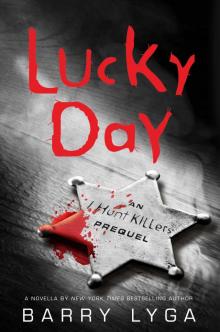 Lucky Day
Lucky Day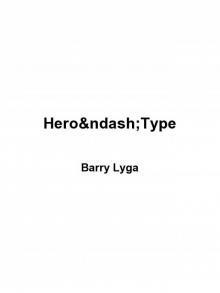 Hero-Type
Hero-Type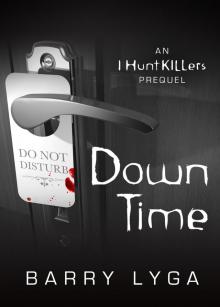 Down Time
Down Time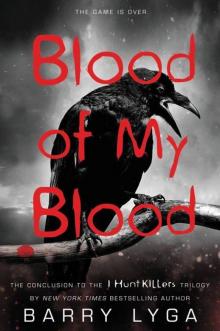 Blood of My Blood
Blood of My Blood Goth Girl Rising
Goth Girl Rising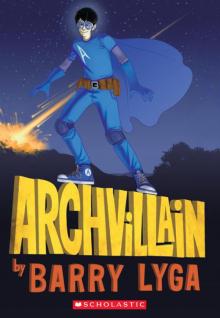 Archvillain
Archvillain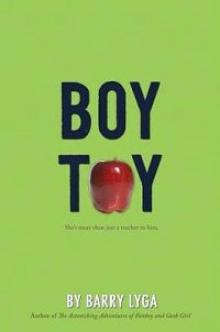 Boy Toy
Boy Toy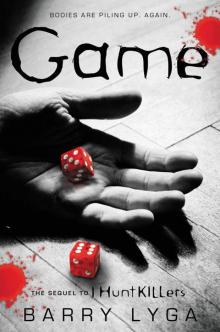 Game
Game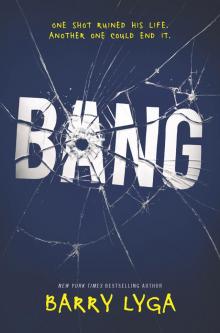 Bang
Bang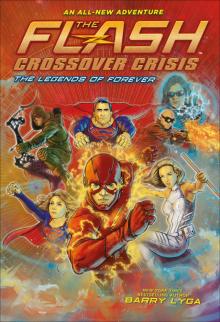 The Legends of Forever
The Legends of Forever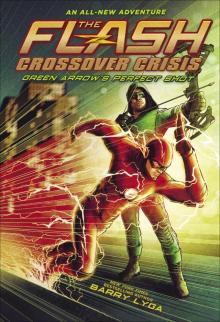 The Flash: Green Arrow's Perfect Shot
The Flash: Green Arrow's Perfect Shot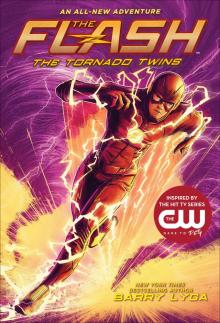 The Flash: The Tornado Twins
The Flash: The Tornado Twins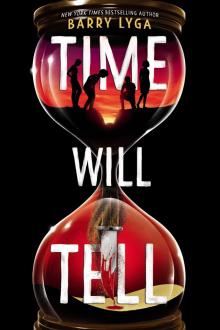 Time Will Tell
Time Will Tell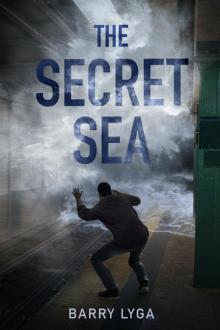 The Secret Sea
The Secret Sea The Hive
The Hive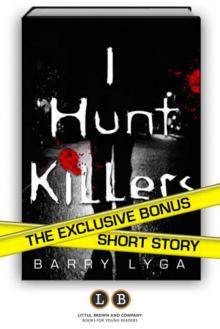 Career Day
Career Day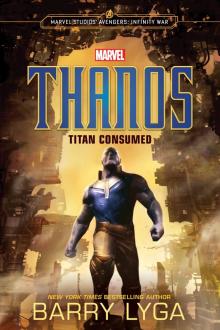 MARVEL's Avengers: Infinity War: Thanos
MARVEL's Avengers: Infinity War: Thanos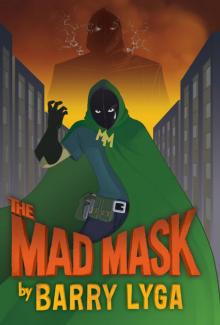 The Mad Mask
The Mad Mask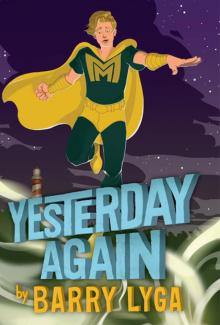 Yesterday Again
Yesterday Again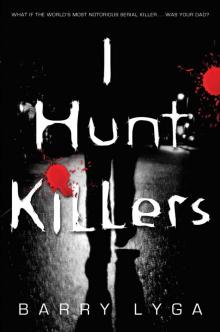 I Hunt Killers
I Hunt Killers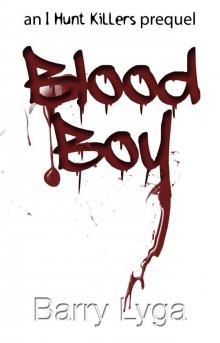 Blood Boy
Blood Boy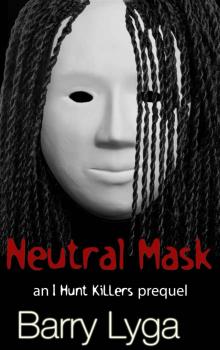 Neutral Mask
Neutral Mask The Astonishing Adventures of Fanboy and Goth Girl
The Astonishing Adventures of Fanboy and Goth Girl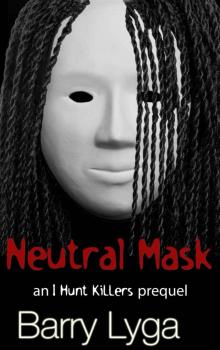 I Hunt Killers Neutral Mask
I Hunt Killers Neutral Mask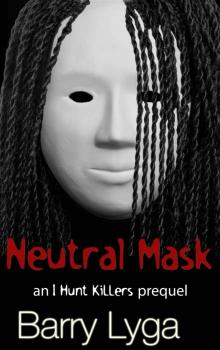 Neutral Mask: an I Hunt Killers prequel
Neutral Mask: an I Hunt Killers prequel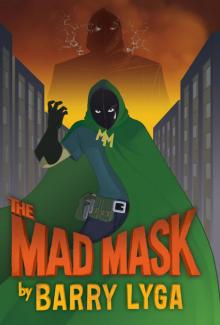 Mad Mask
Mad Mask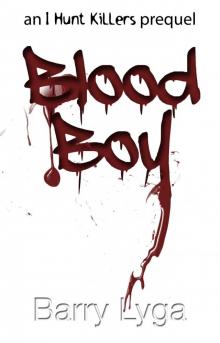 Blood Boy: an I Hunt Killers prequel
Blood Boy: an I Hunt Killers prequel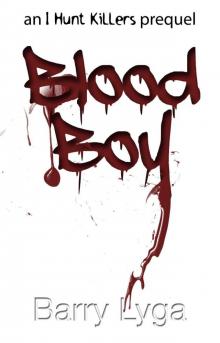 I Hunt Killers Blood Boy
I Hunt Killers Blood Boy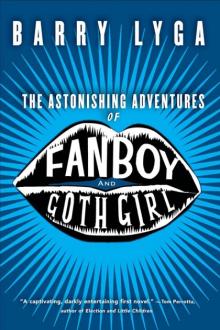 The Astonishing Adventures of Fan Boy and Goth Girl
The Astonishing Adventures of Fan Boy and Goth Girl